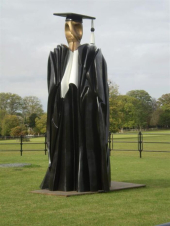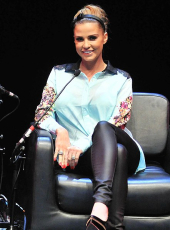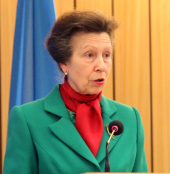
Cycling bosses are investigating the possibility of testing riders in the middle of road races as they continue to combat the threat of mechanical doping in the sport.
Belgian teenager Femke Van den Driessche was discovered to have a motor inside the frame of her bike at the recent cyclo-cross World Championships, a revelation that sparked speculation that the problem may be more widespread.
UCI president Brian Cookson insists that the world governing body is on the ball when it comes to "technological fraud" and even considering drastic new testing procedures.
"The technology that we have now allows testing perhaps not literally on the move, but it's very flexible, it's very lightweight," said Cookson, who is at the track World Championships in London.
"It can even be attached to an iPhone, certainly an iPad. We will be testing before, after and, if necessary, during (races) from time to time.
"We have an open mind at looking at the opportunities for that. We will maybe have a commissaire on a motorbike who will stop with a rider who is changing a bike.
"We'll look for suspicious and intelligence-led solutions, as we are doing in the anti-doping field. We have a small anti-doping intelligence testing function, looking at connections between anti-doping agencies' information, from customs, governments, police authorities.
"That approach we're spreading to mechanical, technological fraud as well."
- 'Stiff penalties' -
Cookson insisted that the UCI's investigations will cover all disciplines of the sport.
"At the moment we're looking at a random system, but all of the events, all of the bikes will be checked as they go on," he said.
"I'm not saying 100 per cent, every bike will be tested, but I think you can be assured every medallist here will have had their bike tested."
Van den Driessche is still to have her punishment handed out for the offence, with Cookson calling for her to be dealt with in the strongest possible way.
"The UCI has requested extremely stiff penalties. It's fair to say that, in something like this, not just the rider can be sanctioned and will be involved."
Cookson also admitted he is concerned about delays in the construction of the velodrome that will host track cycling at the 2016 Olympic Games in Rio de Janeiro.
Rio organisers have already cancelled one test event with an alternative date set for late April, although Cookson describes that target as a "challenge".
The Great Britain track team, winners of seven track golds at London 2012, has already pulled out of the test event because of doubts over whether it will actually take place.
The UCI were informed that contractors were scheduled to start laying the timber track in Rio this weekend which, with the track programme scheduled to start on August 11, presents problems given the complications involved in bedding a new track into a facility.
"The test event has been deferred already. We are assured by the Rio organising committee that the dates April 29 to May 1 are deliverable but I think that's a challenge," said Cookson.
"But the building still hasn't been finished and obviously I would encourage the organising committee, the city and the mayor to do a great job for us and we will do everything we can to help them."
Cookson's faith in the Rio organising committee delivering on their commitments is based at least in part on the fact that there is no alternative plan in place should the building not be ready.
"I have no doubt there will be a velodrome ready and functional to the required standards for the Olympic Games," he said.
"The contingency plan is to have the Olympic Games in Rio and to have a track ready and finished. There is no alternative." afp


































